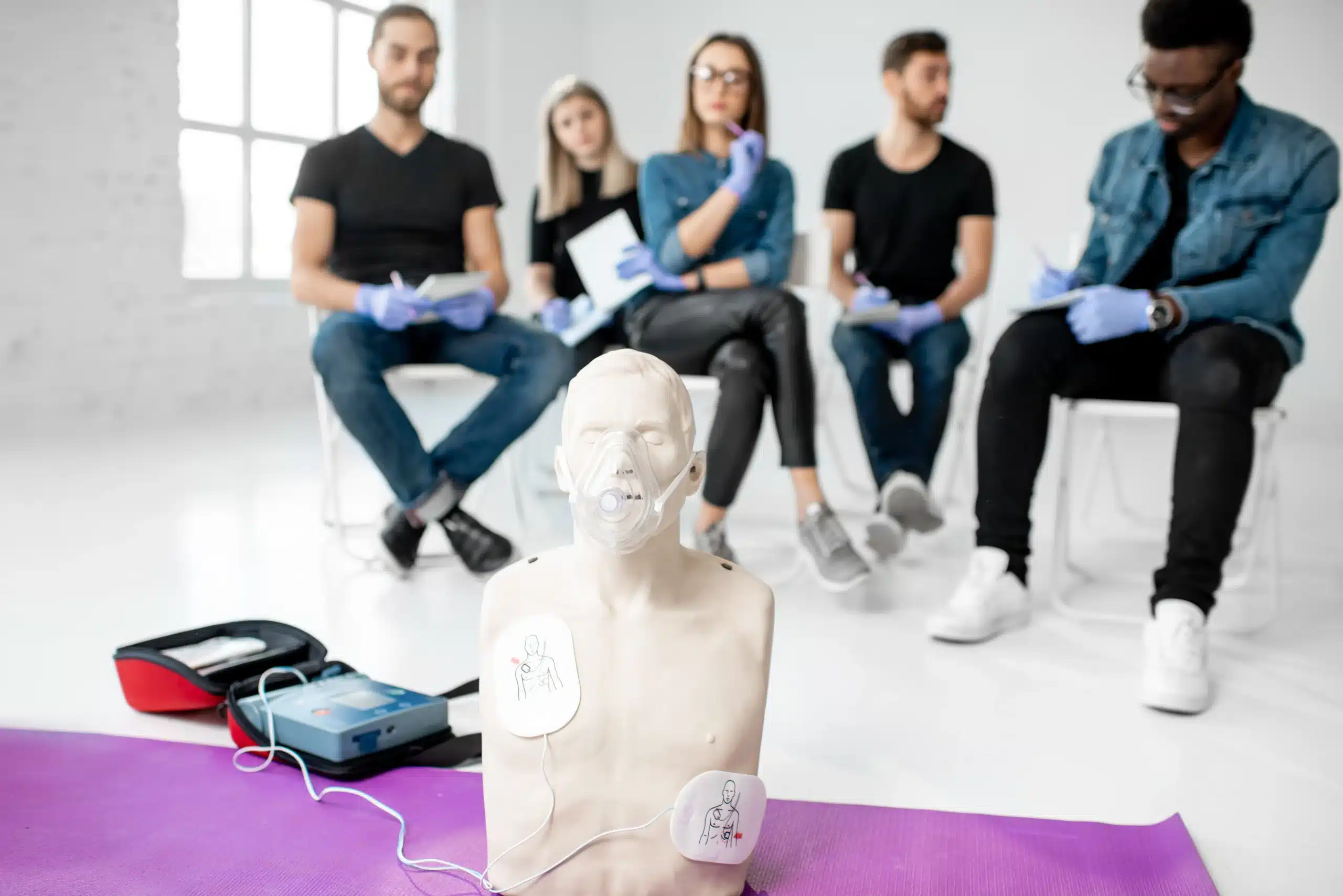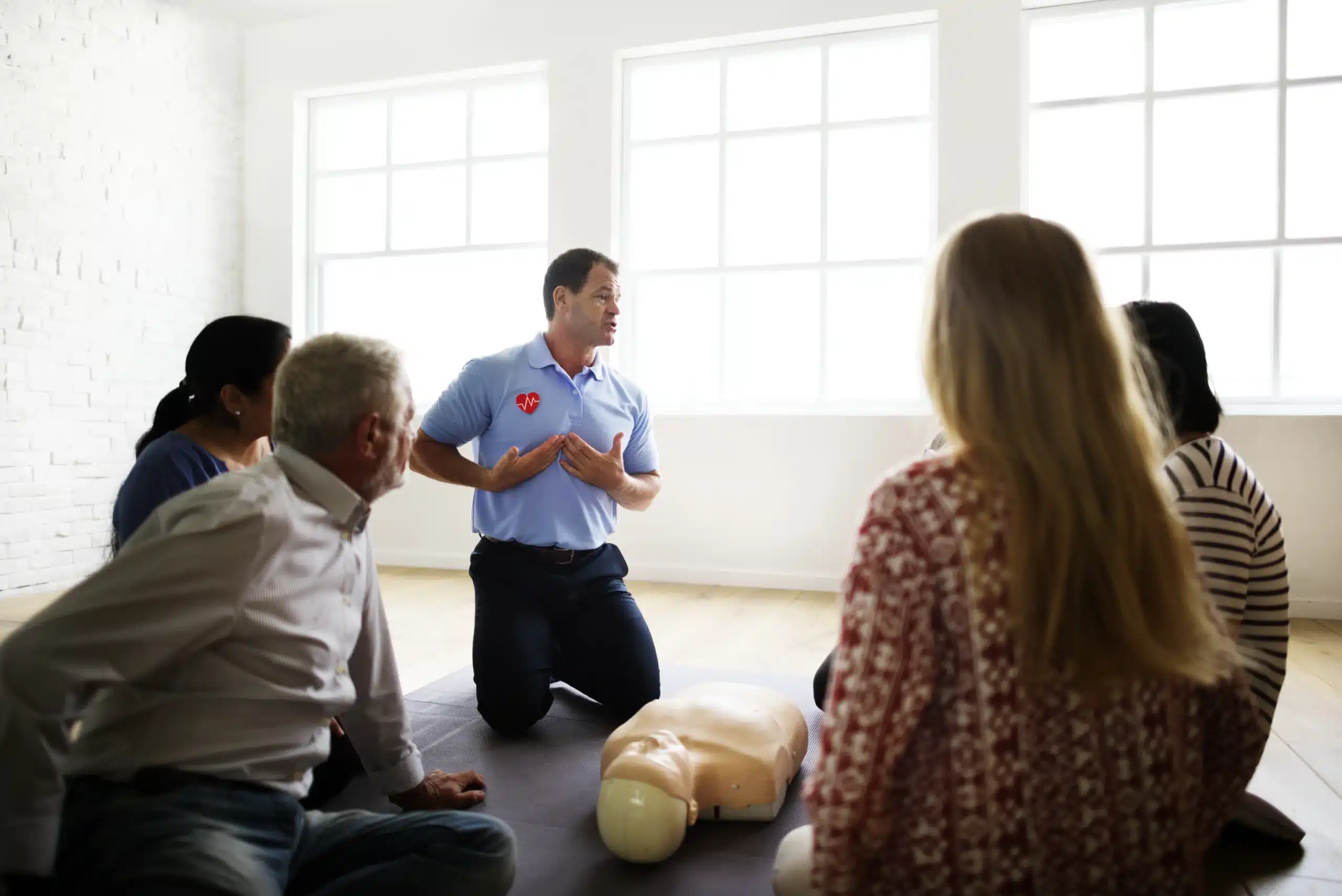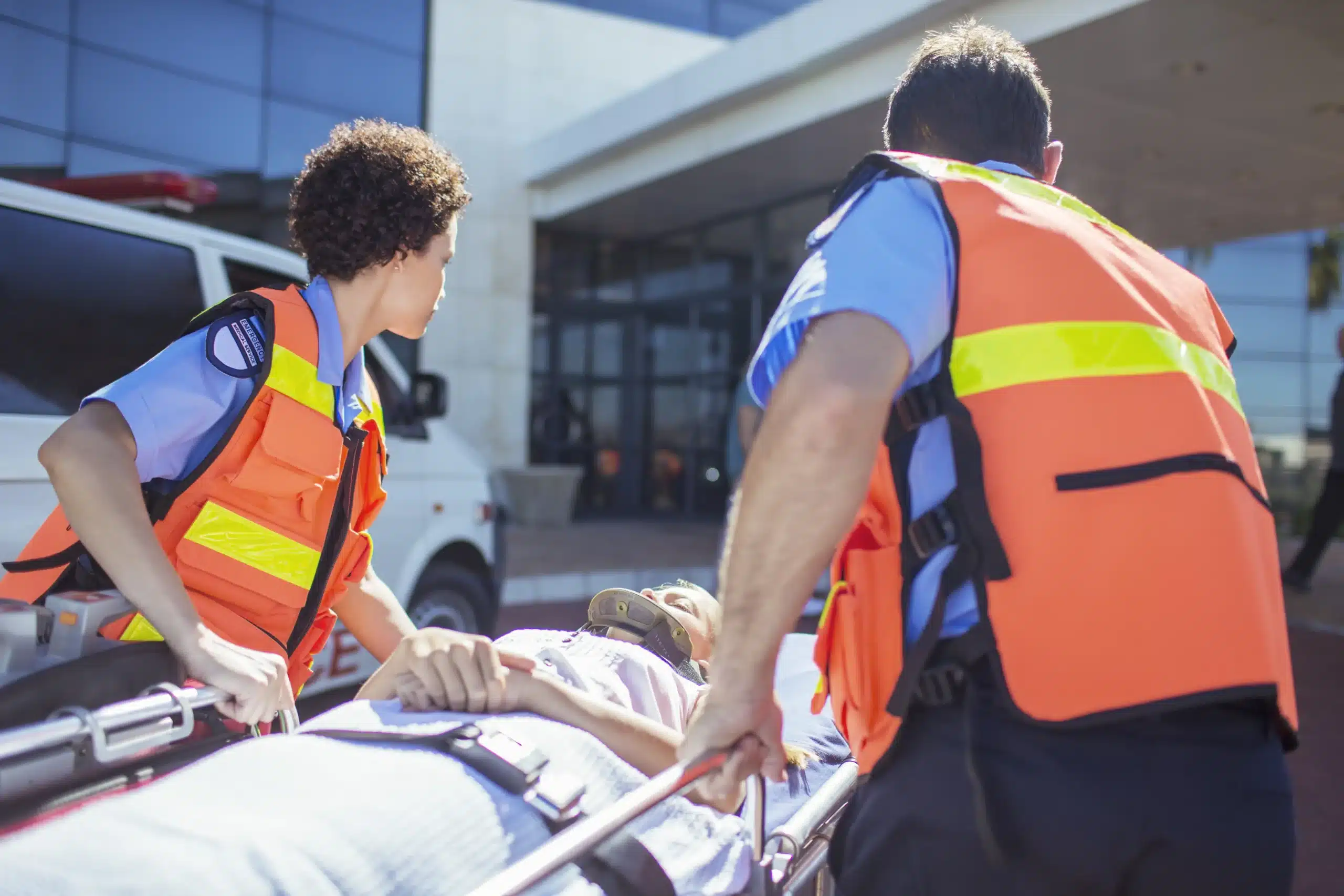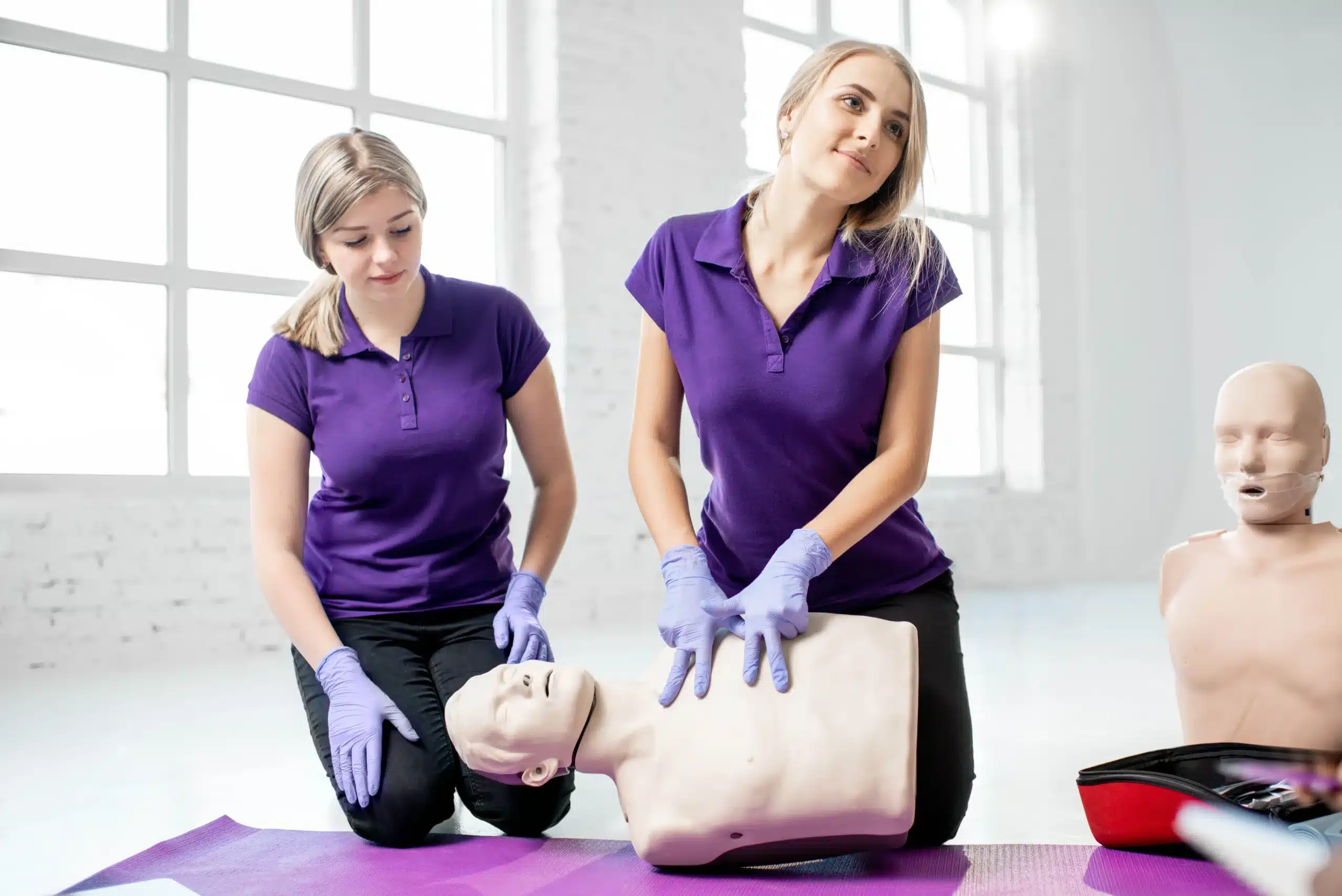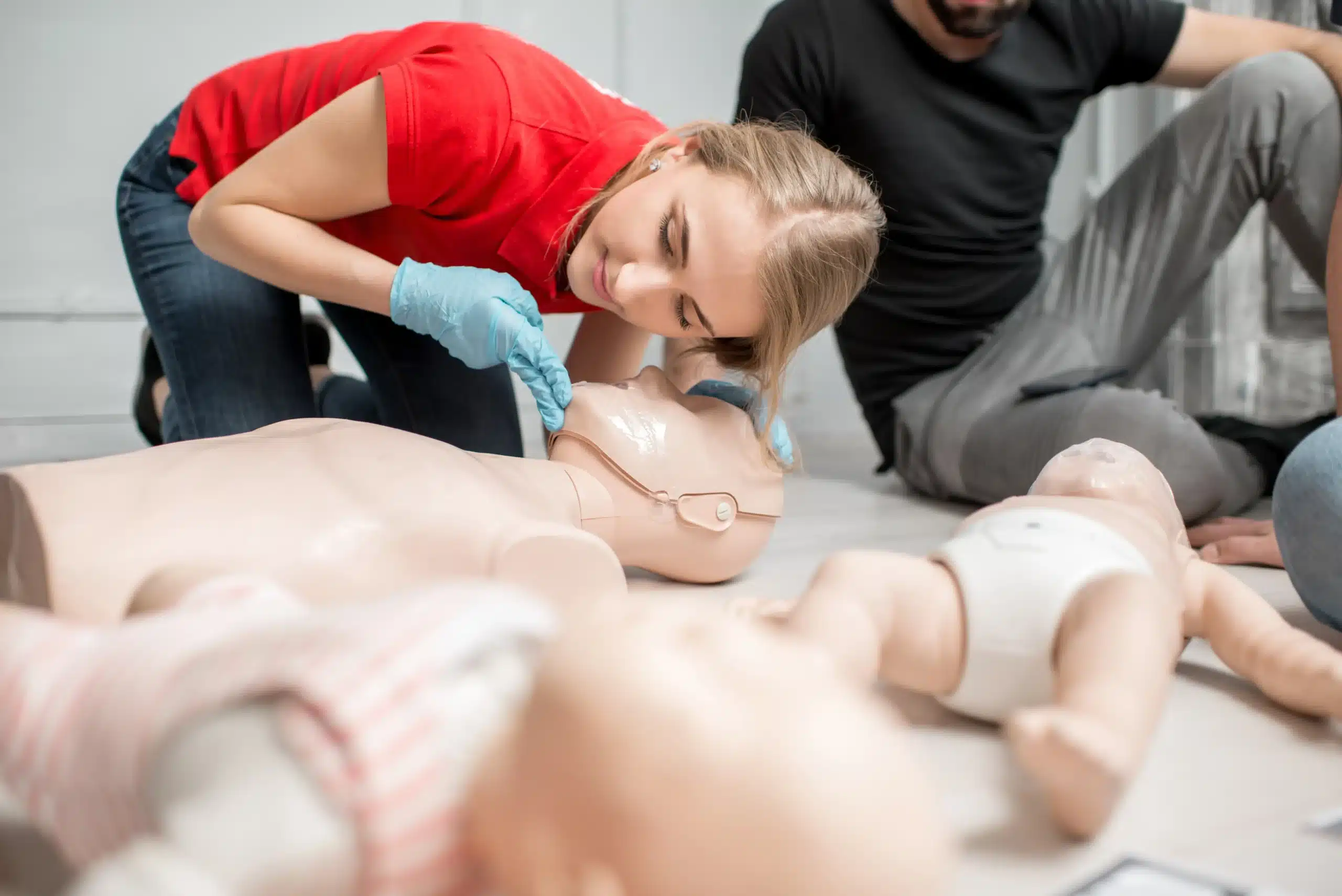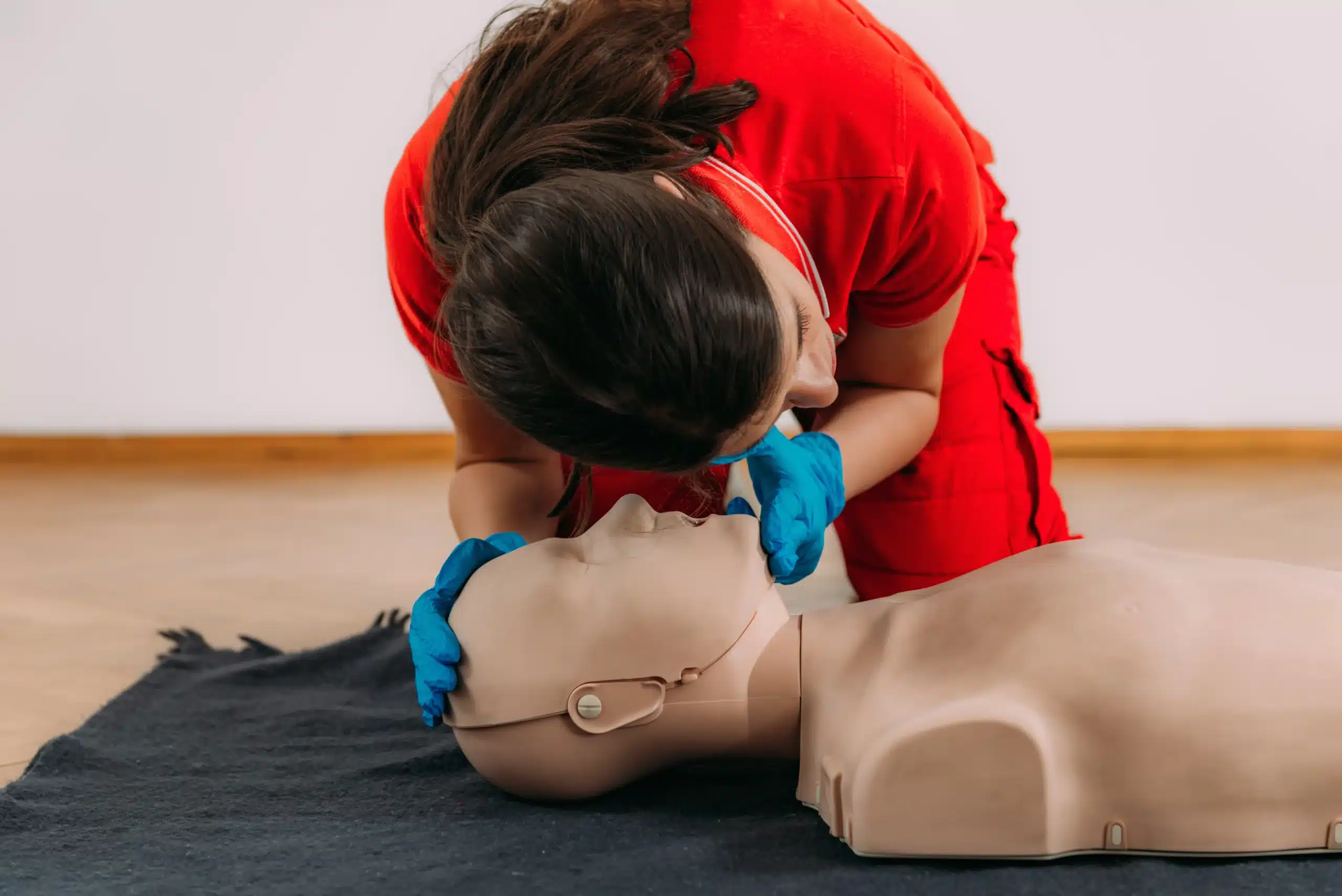As a healthcare provider, you’re dedicated to providing the best possible care, and when it comes to children, that means being prepared for anything. PALS Heartcode in Tracy offers a blended learning approach to Pediatric Advanced Life Support training, equipping you with the skills to confidently manage pediatric emergencies. This program combines the convenience of online learning with the essential hands-on practice needed to master life-saving techniques. This article explores the benefits of PALS Heartcode training, what the program entails, where to find it in Tracy, and how it can significantly enhance your ability to care for young patients. We’ll also delve into the costs, common misconceptions, and key factors to consider when choosing a training provider.
Key Takeaways
- PALS HeartCode blends online learning with hands-on practice: This flexible format accommodates busy schedules while ensuring you gain both theoretical knowledge and practical skills.
- The curriculum covers a wide range of pediatric emergencies: From CPR and team dynamics to shock and post-arrest care, PALS HeartCode equips you to handle various critical situations.
- Finding the right training provider is key: Look for experienced instructors, convenient locations, and a course structure that fits your learning style and schedule. Don’t hesitate to ask providers about their qualifications and course details.
What is PALS HeartCode and Why Does It Matter?
Key Objectives and Topics
PALS HeartCode is a blended learning program combining online coursework with a hands-on skills session. This format lets healthcare providers learn the essentials of Pediatric Advanced Life Support (PALS) at their own speed before demonstrating their skills in person. The online portion covers key concepts like high-quality CPR, team dynamics, and recognizing and treating respiratory issues, shock, dysrhythmias, and post-arrest management. This flexible design makes it easier for busy professionals to fit this crucial PALS training into their schedules. The American Heart Association offers more detail about the PALS HeartCode program.
Importance for Healthcare Providers
PALS training is crucial for any healthcare provider who may face pediatric emergencies. Whether you’re a doctor, nurse, paramedic, or respiratory therapist, having the skills to manage these situations effectively can significantly impact a child’s outcome. PALS certification empowers providers to confidently assess and address life-threatening conditions in infants and children, ultimately improving the quality of care and increasing survival rates. Resources like those from Tracy CPR Classes highlight the critical role PALS-trained professionals play in pediatric care. It’s not just about knowing the procedures; it’s about having the confidence to act quickly and effectively in time-sensitive situations.
How Does PALS HeartCode Work?
PALS HeartCode uses a blended learning approach, combining online coursework with hands-on practice. This format lets you learn the material at your own speed online, then apply your knowledge in a real-world setting.
Online Learning
The online portion of PALS HeartCode uses adaptive learning technology to personalize your experience. The program adjusts to your learning style, making your study time more efficient. You’ll work through interactive lessons, case studies, and simulations, building a solid foundation in pediatric advanced life support. You’ll receive a certificate of completion after finishing the online modules, which is required for the next step.
Hands-on Skills Assessment
After completing the online training, you’ll schedule an in-person skills session at an AHA Training Center. This session focuses on practical application and assessment. You’ll perform child and infant basic life support (BLS) skills and participate in learning stations covering respiratory issues, rhythm disturbances, and vascular access. While testing on the case scenarios at these stations is optional, practicing them is required. The in-person session usually takes about five hours, including breaks.
Blended Learning Advantages
The blended learning format offers flexibility and personalized learning. The online modules allow you to learn at your own pace and on your own schedule. The self-directed nature of the online portion lets you focus on areas needing more attention. The hands-on session reinforces your online learning, building confidence and competence in your PALS skills. This combination of online and hands-on learning creates a comprehensive educational experience, preparing you to provide excellent pediatric care.
What Will You Learn in PALS HeartCode?
PALS HeartCode equips healthcare providers with the knowledge and skills to confidently manage pediatric emergencies. This comprehensive program covers a range of critical topics, ensuring you’re prepared to provide the best possible care.
High-Quality CPR and Team Dynamics
Effective resuscitation relies on both individual skills and coordinated teamwork. This section emphasizes high-quality CPR techniques specifically designed for pediatric patients. You’ll also learn how to function effectively within a team, improving communication and coordination during emergencies. This focus on team dynamics helps create a structured response, maximizing the chances of a positive outcome. For more information on the PALS course and it’s benefits, visit the American Heart Association‘s website.
Pediatric Assessment and Respiratory Management
Quickly and accurately assessing a child’s condition is crucial in an emergency. You’ll learn how to perform a rapid assessment, identify signs of respiratory distress, and administer appropriate interventions. This includes understanding the nuances of pediatric airways and using specialized equipment for effective respiratory support. Tracy CPR Classes offers more information on PALS courses.
Shock Recognition and Treatment
Shock is a life-threatening condition that requires immediate attention. This module teaches you to recognize the various types of shock that can affect children, understand their underlying causes, and implement appropriate treatment strategies. Early recognition and intervention are key to improving a child’s chance of survival. Learn more about the importance of PALS training from Tracy CPR Classes.
Cardiac Arrest and Arrhythmia Management
Cardiac arrest and arrhythmias require prompt and decisive action. You’ll learn to identify and manage these critical situations, including performing high-quality CPR, administering medications, and using advanced life support techniques. This training provides the skills necessary to stabilize a child’s condition and optimize their chances of recovery. The American Heart Association offers HeartCode PALS certification.
Post-Arrest Care
The period following resuscitation is just as important as the initial response. This section focuses on the critical steps of post-arrest care, including stabilizing the patient, managing complications, and ensuring ongoing support. Proper post-resuscitation care is essential for maximizing long-term recovery and minimizing the risk of further complications. Avoid common mistakes in PALS by reviewing resources like this article on common PALS mistakes.
Where Can You Find PALS HeartCode Training in Tracy?
Finding the right PALS HeartCode training in Tracy is crucial for healthcare providers wanting to improve their pediatric emergency care skills. Several providers offer this blended learning course, combining online modules with in-person skills sessions. Let’s explore some options:
Safety Training Seminars
Safety Training Seminars offers convenient, AHA-certified PALS courses right here in Tracy. Located near Livermore and Modesto, their central location makes training accessible for healthcare professionals throughout the region. They focus on excellent customer service and competitive pricing, making them a solid option for your PALS HeartCode training. Check their website for course schedules and registration information.
Tracy CPR Classes
Tracy CPR Classes is another option for PALS certification in the area. They offer the blended learning format, allowing you to complete the online portion at your own pace before scheduling your hands-on skills session. Their courses cover essential topics like pediatric assessment, respiratory management, and cardiac arrest scenarios. Visit their site for more details and to register.
Other Local Providers
Beyond these dedicated providers, you might find PALS HeartCode training through hospitals, community colleges, and other healthcare organizations. These courses typically follow the AHA’s blended learning model, which includes online coursework and a hands-on skills check. Confirm course schedules and availability directly with each provider. Many offer flexible scheduling, with classes available throughout the week and on weekends to accommodate busy professionals. You can often receive your certification card the same day you complete your skills check.
How Much Does PALS HeartCode Cost in Tracy?
Understanding the cost of PALS HeartCode training is essential for planning your certification. This section breaks down the fees, compares prices from different providers, and outlines what’s included.
Course Fees
PALS HeartCode training combines online coursework with a hands-on skills session. The total cost typically covers both components. For example, Tracy CPR Classes offers the complete PALS HeartCode program—online portion, skills testing, and certification card—for $290. This comprehensive pricing simplifies budgeting and ensures you’re ready for certification.
Comparing Provider Prices
While the combined format is common, some providers offer the online portion separately. The American Heart Association’s HeartCode PALS online course costs $168. This offers flexibility if you want a separate skills session or prefer a different provider for that part. Remember to factor in the added cost of the hands-on skills test with an instructor. Compare total prices to find the best value and ask about group discounts if you’re training a team.
Additional Materials and Resources
When evaluating costs, consider included materials. The HeartCode PALS online course often includes the PALS Provider Manual eBook, helpful for studying and reference. This digital manual covers essential information, like high-quality CPR, team dynamics, and pediatric emergencies, enhancing your learning and overall success.
How Does PALS Certification Benefit Healthcare Professionals?
PALS certification, whether through a traditional classroom course or the blended PALS HeartCode program, offers significant advantages for healthcare professionals working with infants and children. These benefits go beyond simply checking a box for job requirements; they empower providers to deliver better care and grow professionally.
Improve Patient Care
PALS training equips healthcare providers with the knowledge and skills to respond effectively to pediatric emergencies. It emphasizes early recognition and intervention in critical situations like respiratory distress, shock, and cardiac arrest. This proactive approach, as highlighted by Tracy CPR Classes, improves the quality of care and significantly increases a child’s chance of survival.
Advance Your Career
Holding a PALS certification demonstrates a commitment to specialized pediatric care. It’s often a required or preferred credential for positions in emergency departments, pediatric intensive care units (PICUs), and other specialized settings. This certification can create new career opportunities and enhance your professional standing. According to Bay Area CPR, PALS equips individuals with the skills to confidently manage life-threatening emergencies in young patients.
Improve Teamwork and Communication
PALS courses emphasize the importance of effective teamwork and communication during emergencies. The training includes simulations and scenarios that require participants to work together, communicate patient information clearly, and coordinate their efforts. This focus on team dynamics, as described by the American Heart Association, results in more efficient and effective responses, ultimately improving patient outcomes. These skills translate to better patient care every day.
How Can You Prepare for PALS HeartCode?
Getting ready for your PALS HeartCode certification involves understanding the prerequisites, gathering your study materials, and implementing some practical tips. Let’s break down each step to help you feel confident and prepared.
Prerequisites and Eligibility
Before you begin the PALS HeartCode course, you’ll need a solid foundation in basic life support. Demonstrating competency in child and infant BLS is essential. While the course offers optional testing of case scenarios, active participation in hands-on skill sessions is mandatory. These sessions cover key areas like respiratory management, recognizing rhythm disturbances, and vascular access techniques. You’ll practice these skills at designated learning stations to build proficiency. For more details on PALS requirements, review the HeartCode PALS FAQ from the American Heart Association.
Study Materials and Resources
The PALS HeartCode course provides several resources to help you master the material. You’ll receive access to the PALS Provider Manual eBook, a crucial tool for understanding the guidelines and protocols for pediatric advanced life support. The course also grants online access to the 2010 AHA Guidelines for CPR and ECC, along with the Handbook of Emergency Cardiovascular Care for Healthcare Providers. These resources offer comprehensive information to support your learning. Learn more about the program details on the American Heart Association website.
Tips for Success
Beyond the required materials, a few extra steps can significantly enhance your PALS HeartCode preparation. Consider supplementing your learning with additional courses or workshops focused on pediatric emergency care. This extra practice can boost your confidence and deepen your understanding. It’s also important to distinguish PALS certification from basic life support (BLS). These are distinct certifications with different scopes, and understanding the difference is key. Articles addressing common PALS misconceptions can further clarify your understanding and set you up for success.
Common Misconceptions about PALS HeartCode
It’s easy to get tripped up by some common misconceptions about PALS HeartCode certification. Let’s clear up a few of them so you can make the right decisions about your training.
Online vs. In-Person Certification
One frequent misconception is that online PALS courses aren’t as good as in-person classes. Some assume online certification is less thorough or comprehensive. However, high-quality online courses like PALS HeartCode adhere to the same standards as traditional in-person training. They cover identical material and demand the same competency. The online portion lets you learn at your own pace, while the required in-person skills check ensures you can perform necessary skills. Medtigo offers additional information on this topic.
Who Needs PALS Certification?
Another misconception is that only doctors and nurses need PALS certification. While crucial for these professionals, anyone involved in pediatric emergency care benefits from PALS training. This includes paramedics, respiratory therapists, emergency medical technicians, and even childcare providers. Bay Area CPR explains how more trained professionals in various settings can significantly improve outcomes in pediatric emergencies. Consider PALS training if you regularly work with children and might need to respond to a medical emergency.
Certification Renewal
Finally, some mistakenly believe that PALS certification is permanent. Like many healthcare certifications, PALS certification requires renewal every two years. This ensures providers stay current with the latest guidelines and best practices in pediatric advanced life support. Regular renewal helps maintain skills and knowledge, ultimately leading to better patient care. Medtigo provides further details about renewal requirements.
How to Choose a PALS HeartCode Provider in Tracy
Choosing the right PALS HeartCode provider is crucial for a successful learning experience. It’s more than just finding a class; it’s about finding the right fit for your learning style and schedule. Here’s what to consider when making your decision:
Factors to Consider
Think about these key factors as you explore different PALS HeartCode providers in Tracy:
- Course Format and Flexibility: Do you prefer a blended learning experience with online modules and in-person skills sessions, or a completely in-person class? Consider your schedule and learning preferences. Many providers offer a variety of PALS course options to accommodate different needs. Look for a provider that offers the flexibility you need.
- Instructor Expertise: Experienced, certified instructors are essential for a high-quality PALS HeartCode course. Instructors should be knowledgeable, engaging, and able to answer your questions thoroughly. Check if the provider’s instructors have specific pediatric experience and are actively involved in healthcare. A provider like Safety Training Seminars prioritizes experienced instructors.
- Reputation and Reviews: What are other healthcare professionals saying about the provider? Online reviews and testimonials can offer valuable insights into the quality of instruction, course materials, and overall learning experience. A provider with a strong reputation and positive reviews is a good indicator of quality.
- Location and Accessibility: Is the training facility conveniently located and easy to access? Consider factors like parking, public transportation, and proximity to your work or home. A convenient location, like the one offered by Safety Training Seminars in Stockton, can make attending the hands-on skills session much easier.
Questions to Ask Potential Providers
Don’t hesitate to ask potential providers these important questions:
- What are your instructors’ qualifications? Ask about their certifications, experience teaching PALS, and their background in pediatric care. A reputable provider will be happy to share this information. You can also inquire about the specific competencies covered in the course, such as child and infant basic life support (BLS) and case scenario testing. Safety Training Seminars is transparent about instructor qualifications.
- Can you describe the course structure and duration? Understanding the breakdown of online modules, in-person skills sessions, and the overall time commitment will help you plan accordingly. For example, find out how long the hands-on portion of the HeartCode PALS course typically lasts. Knowing the course structure helps you prepare.
- What is the total cost, and what payment options are available? Make sure you understand all associated fees, including the cost of online materials, skills testing, and certification. Inquire about payment plans or discounts if needed. Comparing prices from different providers, like Safety Training Seminars, can help you find the best value.
- What is your certification process? Confirm that the provider offers a valid AHA PALS Course Completion Card, which is widely recognized in healthcare settings. Ask about the steps involved in receiving your certification after completing the course. A clear certification process ensures you receive your credentials promptly.
By carefully considering these factors and asking the right questions, you can choose a PALS HeartCode provider in Tracy that meets your needs and sets you up for success.
Enroll in PALS HeartCode in Tracy
Ready to enhance your pediatric emergency care skills? The PALS HeartCode program in Tracy offers a smart, convenient path to certification. This blended learning course, offered by the American Heart Association (AHA), combines online coursework with a hands-on skills session, making it both flexible and effective for busy healthcare professionals.
The online portion of the PALS HeartCode training typically takes three to four hours to complete, allowing you to work through the material at your own pace. After finishing the online modules, you’ll schedule a brief, in-person skills session (roughly 30-40 minutes) at an AHA Training Center. This hands-on component lets you practice essential skills and demonstrate competency in a supportive learning environment. Best of all, you’ll receive your PALS certification card the same day you complete the skills check, allowing you to immediately apply your new knowledge and skills.
Safety Training Seminars offers the PALS HeartCode program in nearby Stockton, conveniently serving Tracy and surrounding communities. Visit their website for more information, including registration details, course dates, and pricing. You can also explore the AHA’s official HeartCode PALS page for a comprehensive program overview. Earning your PALS certification is a valuable investment in both your patients’ well-being and your professional development.
Related Articles
- AHA PALS Classes in Stockton, CA – Stockton CPR Classes
- CPR Certification in Stockton: Your Comprehensive Guide – Stockton CPR Classes
- CPR, BLS, ACLS, PALS, & First-aid Classes in Stockton, CA
- CPR Classes in Stockton: Which Course Is Right for You? – Stockton CPR Classes
- First Aid Courses in San Joaquin County: A Complete Guide – Stockton CPR Classes
Frequently Asked Questions
What exactly is involved in the PALS HeartCode blended learning format? PALS HeartCode combines online learning with a hands-on skills session. You’ll work through interactive lessons and simulations online at your own speed, then attend an in-person session to practice and demonstrate your skills. This approach offers flexibility and reinforces learning through practical application.
How long does it take to complete the PALS HeartCode training? The online portion typically takes three to four hours, but you can complete it at your own pace. The in-person skills session is much shorter, usually around 30-40 minutes, focusing on demonstrating the skills you learned online.
If I take PALS HeartCode online, do I still need to do anything in person? Yes, the in-person skills check is required for PALS HeartCode certification. It’s essential for demonstrating your practical skills and receiving your course completion card. This session allows you to practice key techniques and receive feedback from a certified instructor.
Who should consider getting PALS certified? While essential for doctors and nurses working with children, PALS certification benefits any healthcare provider involved in pediatric emergency care. This includes paramedics, respiratory therapists, emergency medical technicians, and others who might need to respond to a child’s medical emergency.
Where can I find PALS HeartCode training near Tracy, CA? Safety Training Seminars offers PALS HeartCode training in nearby Stockton, serving Tracy and the surrounding areas. They provide a convenient location and comprehensive training that meets AHA standards. You can also check with local hospitals, community colleges, or other healthcare organizations for additional training options.
